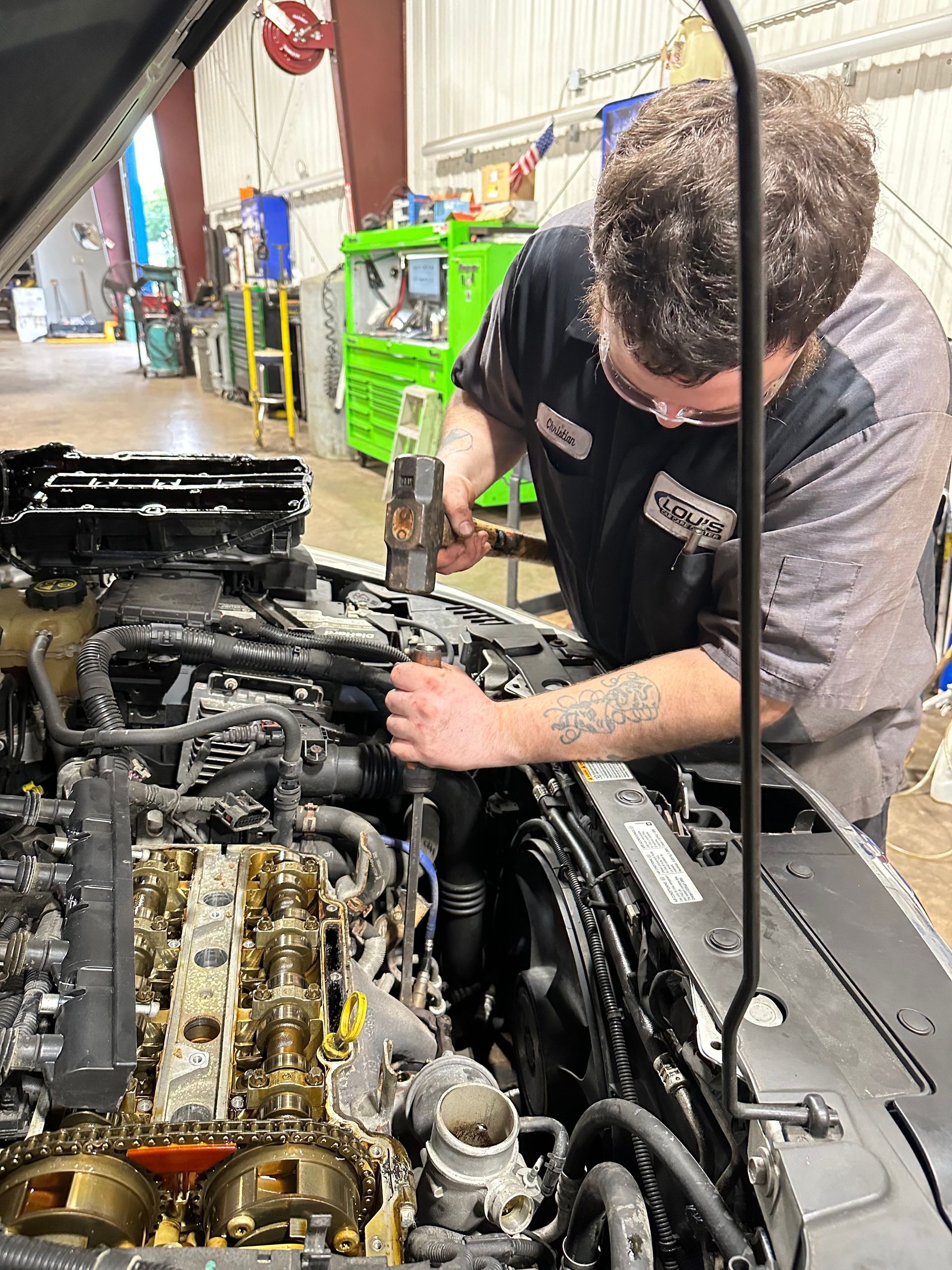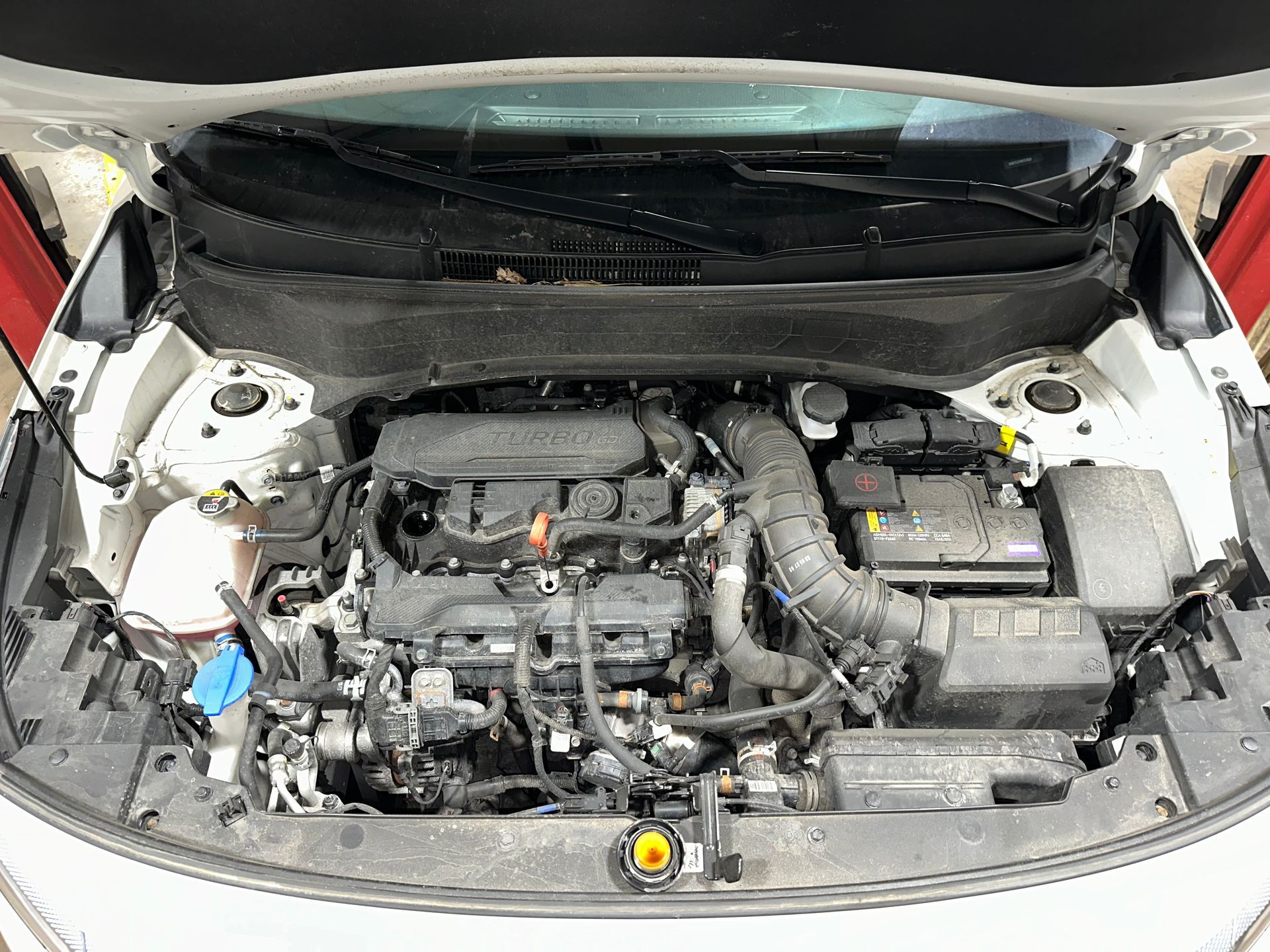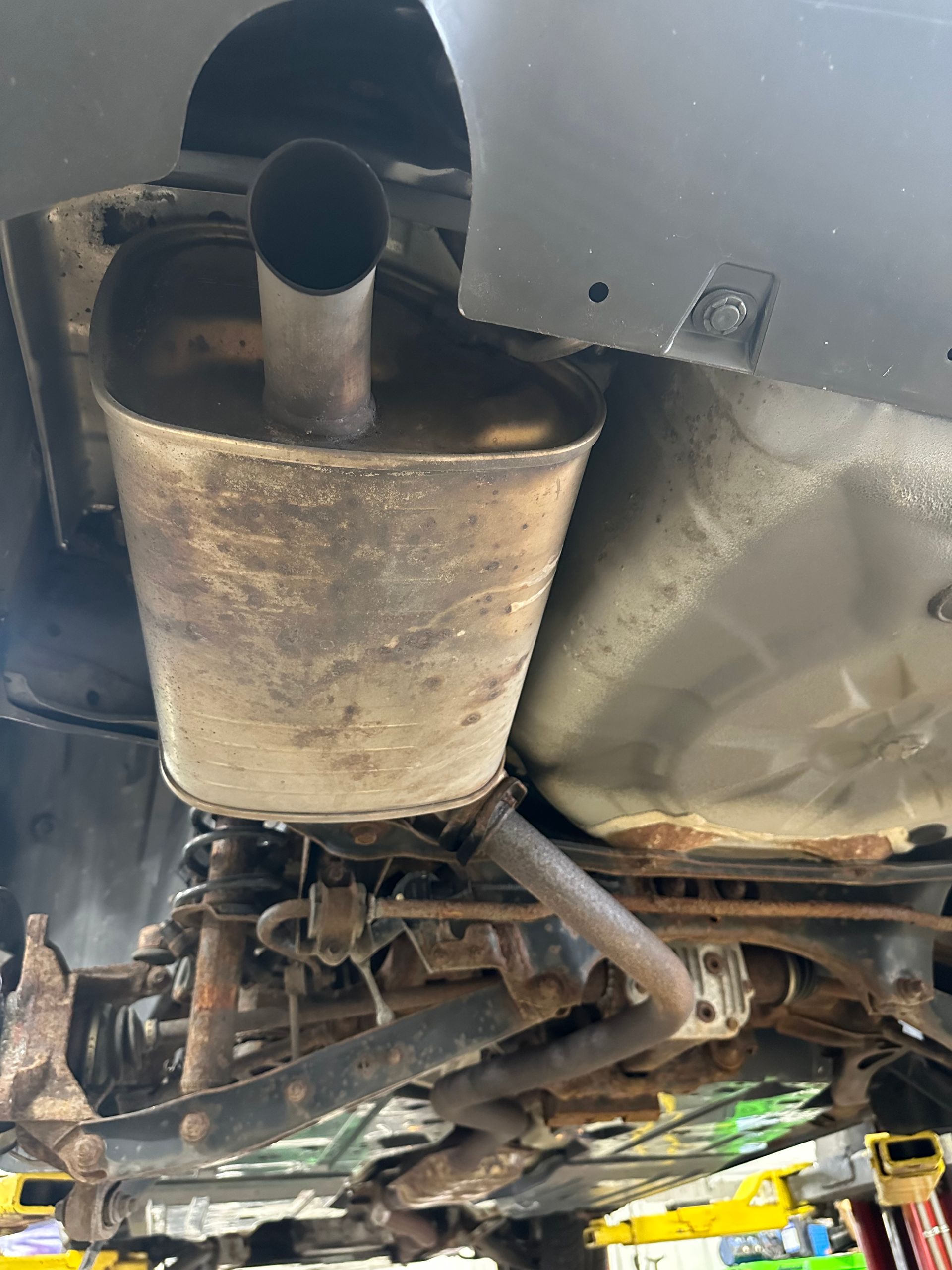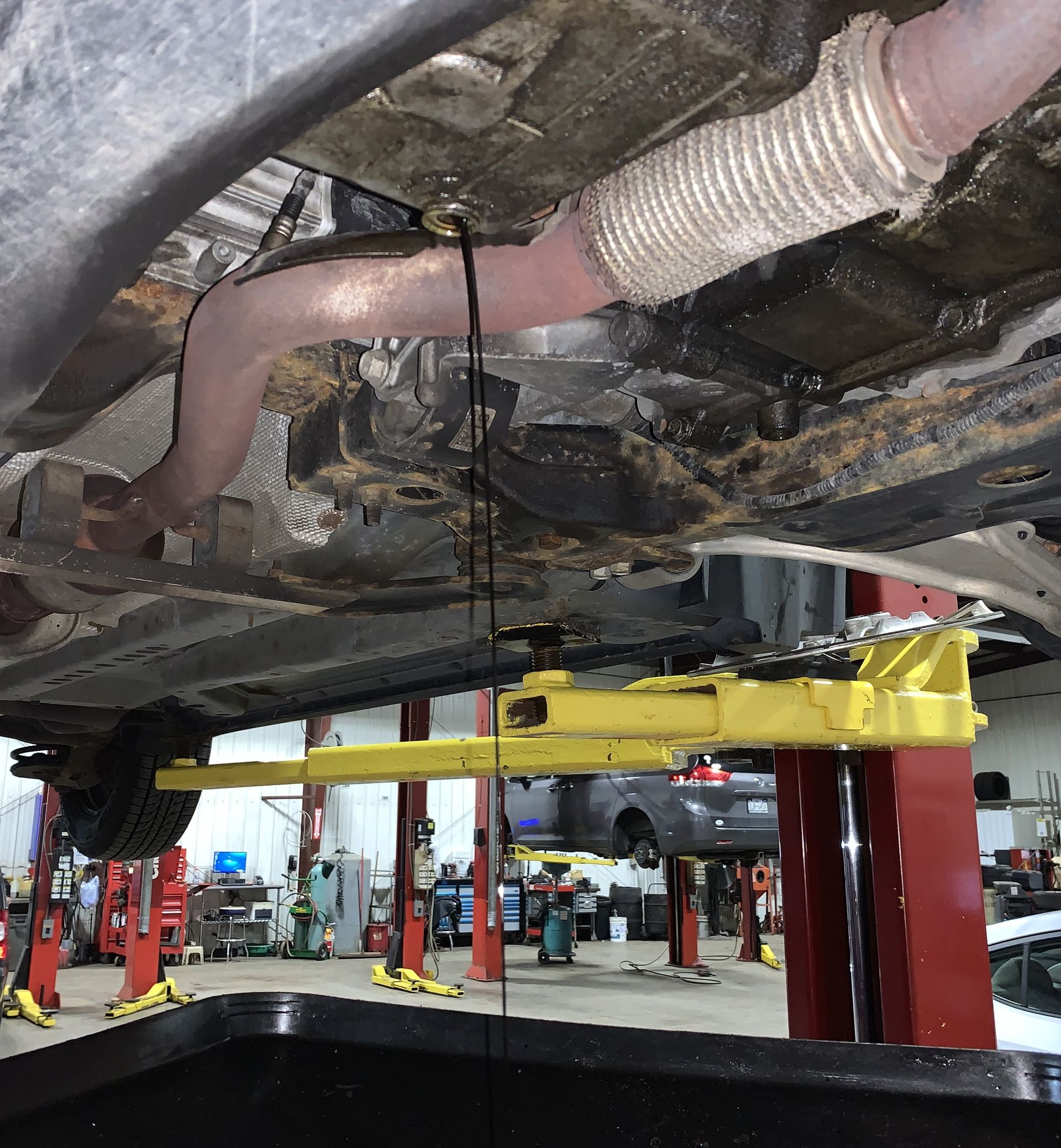
A ticking noise in your car often comes from low or dirty engine oil, valve train issues, an exhaust leak, normal fuel injector operation, or loose engine parts. While some ticking sounds are harmless, others can signal serious engine problems, especially if the noise gets louder when accelerating or continues after the engine warms up.
Why You Might Hear a Ticking Noise
Hearing a ticking sound from your car can be unsettling. In many cases, the noise is nothing to panic about, but sometimes it’s a red flag that something under the hood needs attention. Knowing the common causes can help you figure out what’s normal—and when to schedule a repair.

COMMON QUESTIONS DRIVERS ASK
Why Does My Car Tick When I First Start It?
When you start a cold engine, ticking may come from low oil pressure, thin or dirty oil, or worn valve lifters. If the sound goes away after a few minutes, it’s usually not urgent. But if it sticks around, have it checked.
Why Is My Car Making A Ticking Noise While Idling?
Ticking at idle can be caused by oil issues, fuel injector noise, or worn parts. If your car feels rough or you hear new noises that don’t fade, it’s best to have a mechanic take a look.
Why Do I Hear Ticking When I Accelerate?
A ticking noise that speeds up with acceleration often points to an exhaust leak, engine misfire, or loose parts. This is one you don’t want to ignore, since these problems can quickly lead to expensive repairs.

MAIN CAUSES OF TICKING NOISES
- Low or Dirty Engine Oil – Without clean oil, metal parts knock against each other, causing ticking.
- Fix: Check and top off oil or schedule an oil change.
- Valve Train Problems – Lifters, rockers, and pushrods wear out or get misaligned, producing ticking.
- Fix: Requires a mechanic’s inspection and adjustment.
- Exhaust Leaks – A cracked exhaust manifold or failing gasket can mimic a ticking sound.
- Fix: Replace damaged exhaust components.
- Fuel Injectors – Many cars naturally tick as fuel injectors open and close.
- Fix: Normal if performance is fine.
- Loose or Worn Parts – Belts, pulleys, or engine components sometimes rattle or tick when they’re worn.
- Fix: A professional can tighten or replace parts as needed.

WHEN TO BE CONCERNED
Call a mechanic if:
- The ticking gets louder with acceleration.
- The noise stays even after the engine warms up.
- Warning lights pop up on your dashboard.
- You notice poor performance, stalling, or loss of power.
HOW TO PPREVENT TICKING SOUNDS
- Keep up with regular oil changes.
- Stick to routine maintenance like tune-ups and inspections.
- Don’t ignore new noises—catching issues early saves money.
If you’ve been searching “why is my car making a ticking noise?”, the truth is—it depends. Some ticking is perfectly normal, but other times it’s your car’s way of telling you something’s wrong.
Is your vehicle making a ticking noise? We can help! We can help Lou's Car Care & Fleet Services has been proudly serving Baldwinsville, NY, and surrounding communities since 1976. Call us or schedule your next appointment online today!
Let's Connect! Click on the links below to stay in touch with the Lou's Car Care Community:




